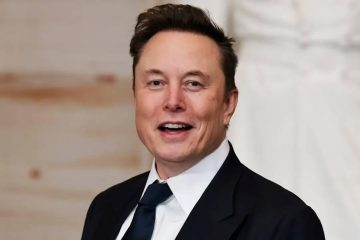Electric vehicles manufacturing Start Ups have sales dropped significantly recently.

Getting people to buy their electric vehicles has turned out to be more of a difficulty than they anticipated.
High loan rates and economic uncertainty are affecting electric vehicle demand, according to Rivian Automotive and Lucid Group, who last week provided poor production predictions for this year.
This year, Rivian, an electric pickup manufacturer, aims to build 57,000 vehicles, which is approximately equal to last year’s output. An increase from last year, Lucid plans to manufacture 9,000 vehicles this year. They both claim to be focusing on attracting clients.
During a call with analysts on Wednesday, Rivian CEO RJ Scaringe stated, “Our major emphasis is on generating demand to reach our 2024 delivery targets”.
Optimistic that these new, agile companies could outsell more established players in the electric vehicle market, investors flooded into the public debuts of Rivian, Lucid, and others.
As they invested billions on manufacturing facilities and the development of high-end, high-performance automobiles, the fledgling businesses suffered heavy losses. Even though they had a hard time getting the hang of mass-producing cars, the corporations insisted their wares were in great demand.
The indicators that the pool of eager purchasers wasn’t as deep as anticipated began to emerge at the same time that the corporations were overcoming their manufacturing issues.
Having a large backlog of waiting clients was a priority for Rivian, which the company stated as recently as this past summer. Even while demand for Scaringe’s products has been robust, the company remains “quite bullish” on the future of the market.
He announced on Wednesday that the backlog of orders at the company had been “notably reduced,” in part due to the fact that the monthly payments are now more expensive than they were when the orders were initially placed, due to increased interest rates.
January had an average new-car loan interest rate of about 7%, up from about 4% in late 2021, when Rivian and Lucid began manufacturing vehicles, according to Edmunds statistics.
As part of its efforts to increase sales, Lucid has mentioned that it is in talks to license its battery and motor technologies to other automakers. “What’s crucial to realize here is we are not production-constrained; it is sales and deliveries,” stated Lucid CEO Peter Rawlinson.
At the conclusion of the week, Rivian stock had fallen 38% to a record low of $10.06. On Friday, Lucid stock closed at$3.02, a 19% weekly drop.
As the demand for battery-powered vehicles in the US is lower than anticipated, car makers like Tesla and Ford Motor are hunkering down. Sales of electric vehicles are on the rise, and company leaders have stated their continued dedication to the technology. However, in an effort to boost sales, several car manufacturers have reduced prices or offered steep discounts. There are some who are reducing manufacturing of electric models or putting off investments in EVs.
Because they lack a sustainable revenue stream, startups are more vulnerable to the unexpected decline in demand for electric vehicles (EVs) than established automakers.
The slow sales of electric vehicles last year also caught established automakers unawares. Leaning on their profitable gas-vehicle operations to underpin their investments in battery power, companies like Ford and General Motors have released solid profit estimates for this year.
Hybrid vehicles, which use a mix of electric and gas power, also had a sales rise last year, therefore many of these automakers are planning to increase manufacturing of these vehicles.
Last month, industry trailblazer Tesla announced price cuts and predicted slower growth this year. Reduced average selling prices contributed to a nearly 50% drop in Tesla’s operating margin to 8.2% in the fourth quarter. As a result of its excellent profit margins, the corporation claims it can weather price cuts.
In a recent series of posts on X, Elon Musk, CEO of Tesla, attacked Rivian and Lucid.
Although Rivian’s product design isn’t terrible, Musk said that the real challenge for any automaker is to achieve mass manufacturing while maintaining a healthy cash flow.
Companies in the electric vehicle industry have reportedly been cutting costs to save money and lowering prices to increase sales. Rivian announced on Wednesday that it will be laying off 10% of its paid employees in an effort to reduce expenses.
Investors are worried that these fledgling companies would run out of money faster if they keep lowering prices to compete. A year ago, Rivian had $11.6 billion in cash on hand; at the end of December, that amount had dropped to $7.9 billion.
Even though Lucid raised $3 billion last year, its cash and equivalents fell $365 million to over $1.4 billion. The Public Investment Fund of Saudi Arabia, which controls 60% of the automaker, provided the majority of those money.
According to Rivian and Lucid, they have enough cash on hand to last until 2025.
Rivian and other up-and-coming electric vehicle manufacturers are juggling the competing priorities of increasing sales and decreasing expenses while simultaneously investing in a new range of cheaper vehicles that they hope will attract a wider audience.
In the next years, major manufacturers may introduce their own more affordable models, which might put even more pressure on startups. Luxury models cost a pretty penny and are sold by a lot of startups like Lucid and Rivian. On average, Rivian automobiles fetched $88,000 in sales in 2017. According to J.D. Power figures, the average price for an electric vehicle in January was $50,369, across the board.
Electric delivery vans, SUVs, and pickup trucks are all part of Rivian’s product lineup. The next-generation R2 series, which includes a new, more affordable model, will be unveiled in early March. The anticipated release year of the car is 2026.
The Air sedan is the only vehicle that Lucid offers for sale. The base model can go around 410 miles on a single charge and costs little under $70,000. Near the year’s end, the business intends to launch the $80,000 SUV Gravity, which it claims would attract a broader range of consumers. In 2026, Lucid intends to release a model that is more reasonably priced.
Not every electric vehicle startup issued a gloomy forecast for the year, and several still haven’t released their Q4 numbers.
After delivering roughly 35,000 electric cars and SUVs last year, VinFast Auto, a Vietnamese business, expects to deliver 100,000 this year. Fisker and Polestar Automotive are expected to release their financial results on Thursday. VinFast Chairwoman Thuy Le predicted that between 15,000 and 20,000 of those sales will go to customers in North America.
Rivian has stated its intention to achieve a gross profit by the year’s end. Concerns about the company’s ability to meet its profit goal have investors considering pricing cuts in the face of flat sales projections.
This is a growing company; they are projected to be considerably boosting volumes,” commented CFRA analyst Garrett Nelson. On the contrary, Rivian announced massive layoffs and cost reductions.
After this, Nelson predicted that the next year would be difficult.










